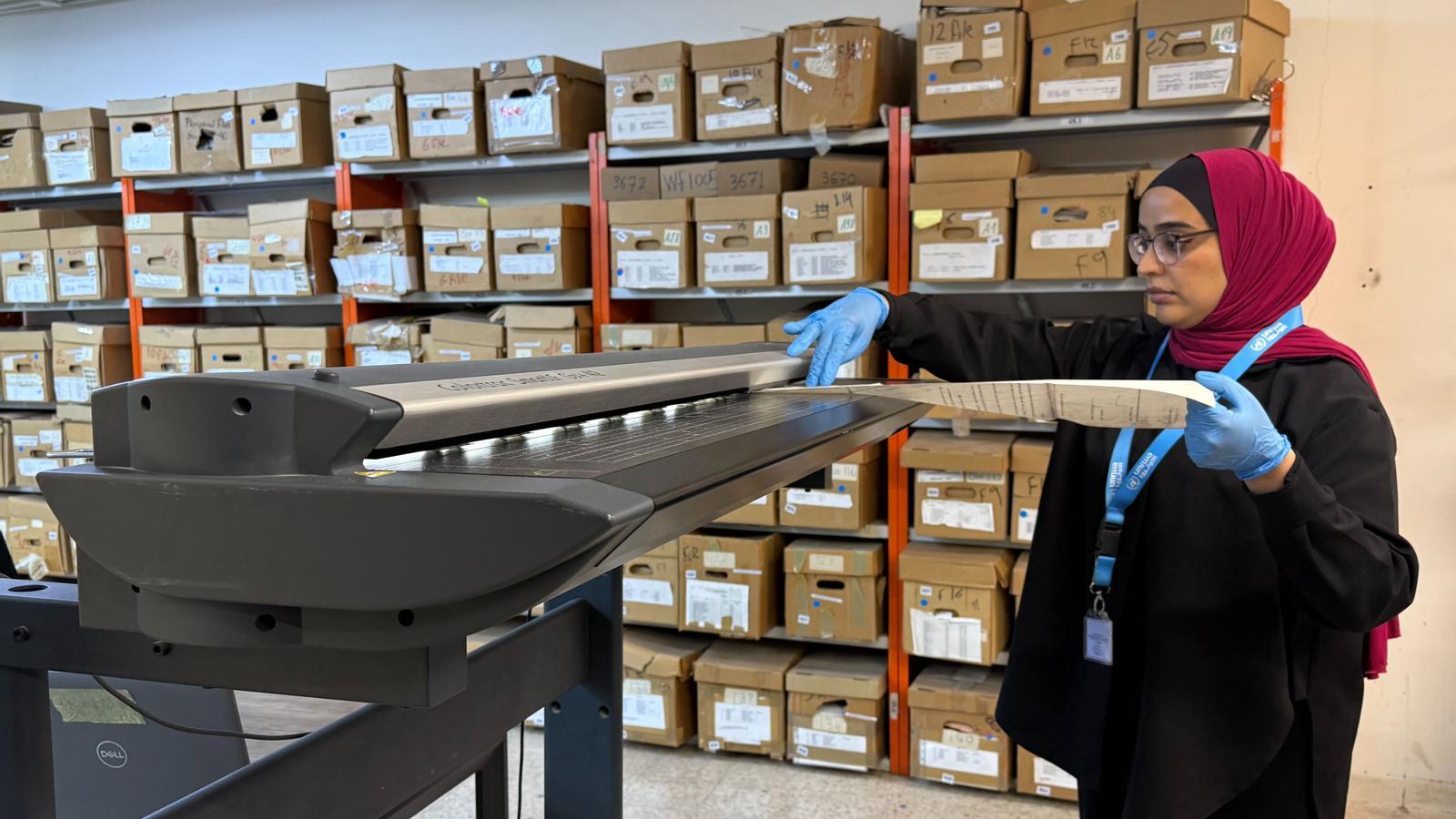Confidentiality agreements, surveillance cameras, and fire alarms: the hidden archive of Palestinian refugees
UNRWA has successfully removed refugee status documents from Gaza for hundreds of thousands of Palestinians.


AmmanWhen the Nazis destroyed Warsaw in 1944, they burned and razed state and municipal archives, including property books, municipal court records, and citizen registers. This wasn't a side effect: it was a premeditated action to destroy administrative evidence proving ownership and rights. When survivors tried to return home in 1945, many found their houses demolished and no documents proving that the property belonged to them.
A similar story hangs over Palestinians today. For Palestinian refugees, preserving the documents that prove they have been evicted is essential. During the first months of the Gaza war, a team from the United Nations Refugee Agency (UNRWA) managed to save the documentation certifying the refugee status of hundreds of thousands of Palestinians and smuggle it out of the enclave confidentially with the help of the Jordanian army. It is now all housed in a basement of the organization in Amman, the capital of Jordan.
Protected by security cameras, waterless fire protection systems and strict environmental controls, the archives of UNRWA They safeguard all of the agency's documentation: records, financial data, and, above all, the family cards of Palestinian refugees. Twenty-four people work every day among boxes and scanners to digitize and classify what is both a historical memory and a legal instrument.
Among these papers are the family registration cards of refugees from Gaza. Many date back to the mid-20th century, when hundreds of thousands of Palestinians were expelled from their land with the creation of the state of Israel in 1948, in an episode known as the Nakba. "Our mandate is to protect the rights of Palestinian refugees as defined by international law," says Maryam Sinnokrotm, head of the archive. These cards, Sinnokrotm explains, in addition to proving refugee status, also grant them eligibility for to UNRWA's health and education services.
The boxes piled high in the warehouse safeguard the history of up to five generations. The cards show names, origins, registration fields, and family relationships. Maintaining them also ensures that any Palestinian without a registration card can, if they prove their parents have one, apply for refugee status or some other administrative recognition. Furthermore, there are property registration documents so that—in the event of a return of the Palestinian population—ownership rights to the occupied lands can be claimed.
Keeping the Memory Alive
Sinnokrotm has been immersed in this work for twenty years. Initially, document preservation was done through manual modifications, but digitization accelerated things: now all documents are archived in the cloud, making them difficult to destroy and ensuring future access. "We're building a family tree for each family member. And later, they'll be able to view and consult historical documents," she explains. They recently managed to completely digitize the refugees' documents and enter them into their system. But they also keep physical copies of each document.
For larger or more fragile documents, they use special scanners and, if necessary, make minor repairs before storing them in protective sleeves that guarantee their preservation. But security is not only physical. The documents this organization works with are very sensitive. They contain personal information that, in the hands of the Israeli government, could harm hundreds of Palestinian families. "Each of the documents contains confidential information about a refugee. We cannot share it with anyone," he warns. That's why all archive workers sign confidentiality agreements and are instructed to scan the documents without reading them.
For Sinnokrotm, working in the archive is a way to "keep alive the memory" of the Palestinian people, who have lived outside their lands for more than 80 years and, despite exile, have maintained their identity through the diaspora.
